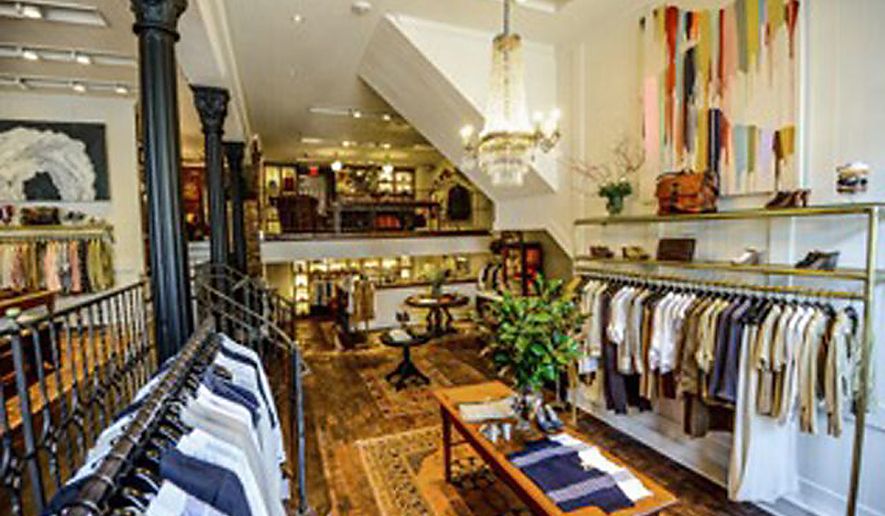Tariffs haven’t hit them yet, but that’s cold comfort to clothing manufacturers who proudly display the “Made in America” label.
Rick Helfenbein, president of the American Apparel & Footwear Association, told Bloomberg News that the multibillion-dollar industry remains “deeply concerned” about the threat of Chinese retaliation for the Trump administration’s tariffs announced in June.
China has imposed a 10 percent tariff that was expected to increase to up to 25 percent at the beginning of next year. Finished apparel so far has not been added to the list.
Alen Lahiji, owner of Solid Fabric Textile and Islands Fabric in Los Angeles, told Apparel News that his cotton and poly/cotton blends are sourced from China and that he has seen a rush to import fabrics before the end of the year. “All the containers have been booked right before January. Everyone is ordering as much as they can,” he said. He also is finding new suppliers in other countries.
The industry was given a 90-day reprieve early this month as President Trump and Chinese President Xi Jinping called a truce to try to work out a deal, though many analysts are skeptical.
Billy Reid, whose clothing brand is known for “worn luxury,” said his company also has been preparing for the trade war. “It’s scary,” he told The Washington Times in an email interview. “The open transportation of raw materials and finished garments are vital to the costing model of our business.”
According to a 2015 survey in Consumer Reports, 8 out of 10 Americans would rather buy products that are made in the U.S. than imported goods and are willing to pay up to 10 percent more for the label. “There’s a noted quality to made in the USA garments, such as tailored clothing and denim that our customer believes in,” Mr. Reid said. “And there’s still something personal to many customers who want to buy into those special items made in America.”
Mr. Reid said his customers “appreciate hidden details, built in quality and timeless pieces.” L.L. Bean, Allen Edmonds and American Giant are among other fashion labels that still produce goods domestically.
As for Billy Reid, “We don’t claim to make everything in America. it would be impossible as many manufacturing capabilities do not exist in the United States.”
Instead, he said, “it takes the whole world for us to develop and manufacture our collection. In many cases, a fabric such as selvedge denim is milled in Japan, then shipped to San Francisco for cutting and sewing, and finished in Los Angeles and Alabama. At times, we are developing textiles in France and Italy and assembling in New York City.”
The Trump administration largely spared Chinese apparel and shoes from tariffs, along with most of the equipment and machinery needed to make them, but Mr. Reid said other drastic changes in the works would be a disaster. “The raw materials we are importing are being used to make garments here domestically and keep factories busy. Adding extra tariffs would make the ’made in USA’ equation tough as the majority of luxury raw materials are mostly produced in Europe and Asia,” he said.
The National Council of Textile Organizations disagrees and said the tariffs don’t go far enough. It issued a statement saying the tariffs should be applied to clothing and high-performance fabrics to slow the flow of Chinese imports that it claims are hurting the industry.
In response to Mr. Trump’s announcement in June, Auggie Tantillo, president and CEO of the trade group, said, “The Trump administration is to be commended for taking decisive action against China’s unfair trade practices. Section 301 tariffs deter trade cheats.”
Trump supporters aren’t the only ones wearing their patriotism on their sleeves. Liberals and environmental activists also have reasons for buying products closer to home. Among them: to lower their carbon footprint, to create less pollution and to ensure more regulated human rights.
Mr. Reid said, “The world is linked together, and we can’t isolate ourselves. As an American designer working with the world to make products, I’d prefer to play nice and make friends.”
• Cheryl Danehart can be reached at cdanehart@washingtontimes.com.




Please read our comment policy before commenting.